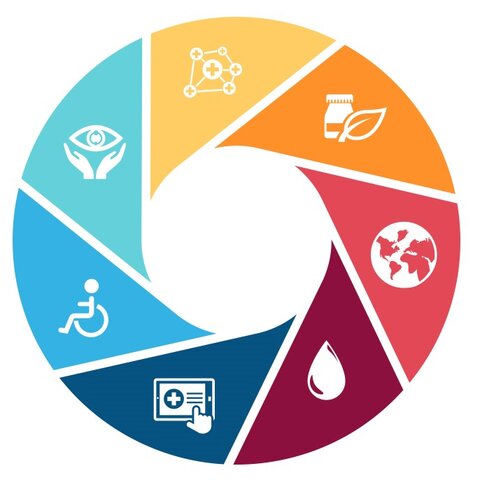With an eye on sustainability, NNN focuses on improving collaboration via cross-cutting working groups

On January 31, 2019 the World Health Organization (WHO) and the Neglected Tropical Disease NGO Network (NNN) launched the WASH and NTD toolkit, which is a step-by-step, practical guide on collaboration on WASH and NTDs. The toolkit emphasizes the importance of working not only across all sectors but inclusively with multiple stakeholders at all levels of the programme. The launch of the toolkit is a highlight of the collaborative work that the NNN’s WASH working Group has been advocating for, and an example of the role of the NNN’s cross-cutting working groups.
In 2016, NNN, in conjunction with the WASH working group, published the Behavior Environment, Social Inclusion, and Treatment and care (BEST) framework, which shifted the paradigm of tackling NTDs away from the focus on medical approaches to a comprehensive, holistic, and multisectoral approach that involves a broad range of stakeholders. Since then, the NNN has actively involved development stakeholders to promote lessons learned and share tools and approaches among the NTD community.
While the Water, Sanitation, and Health (WASH) and Disease Management, Disability, and Inclusion (DMDI) cross-cutting groups have been long-standing and are celebrating their 5 year anniversary this year, there have recently been the addition of other cross-cutting groups, such as the Skin NTDs, One Health, Vector control and Sustainability cross-cutting groups, which were formed in late 2017 and 2018. The Skin NTDs cross-cutting working group focuses on NTDs that have skin manifestations such as leprosy, scabies, mycetoma, LF, podoconiosis, and Buruli ulcer. Its members are comprised of stakeholders from WHO, academia, international dermatological societies and implementing NGOs. The working group is currently developing a package of care for integrated skincare management for NTDs, which would be available publicly and distributed along all tiers of the health care system.
Another key cross-cutting group is the Sustainability cross-cutting group, whose goal is to develop and implement a sustainability framework. The group is working multisectorally with stakeholders to develop tools to advocate for fighting against NTDs and for sustainability. Finally, the Conflict and Humanitarian Emergency (C&HE) cross-cutting group held an inaugural workshop at the NNN Conference in Addis Ababa in 2018. The C&HE cross-cutting group is currently focused on NTD programming in countries experiencing or recovering from humanitarian emergencies through developing partnerships between the humanitarian, development, and NTD sectors; creating a NTD- conflict map; and documenting best practices.
The WASH and NTD toolkit is just the beginning of a cross-collaborative movement to fight against NTDs. The NTD community will soon see more practical, how-to guides from these 5 cross-cutting groups that will help stakeholders work together to end NTDs. For those who have experience and passion in one of these 5 themes, we encourage you to contact the Chair of the groups.